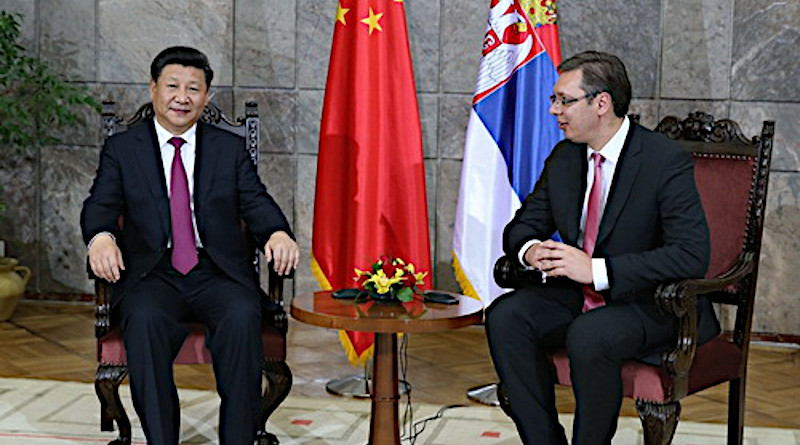Serbia And China Sign Free Trade Deal In Beijing
By Milica Stojanovic
Serbian Trade Minister Tomislav Momirovic and Chinese Commerce Minister Wang Wentao signed a free trade deal between the two countries at the third Belt and Road Forum for International Cooperation, a Chinese economic and political gathering in Beijing on Tuesday.
Serbian President Aleksandar Vucic hailed the deal as “a big step forward for us”.
Vucic said that before Serbia becomes a European Union member state, “we have to live… and we have to think about our country, our children and our future”.
Vucic also hailed his meeting with his Chinese counterpart Xi Jinping.
“[We had] a very important, you can hardly have a more important bilateral meeting in the world than the one we had today with President Xi, an extremely friendly conversation on all important topics,” he told media in Beijing.
Vucic also said that he spoke informally to Russian leader Vladimir Putin, explaining that “we spoke briefly, very briefly, we did not have a bilateral meeting”, but gave no further details of what was said.
Serbia’s Ministry of Construction, Transport and Infrastructure announced that it signed three commercial contracts with Chinese companies related to infrastructure projects worth “almost four billion euros for about 300 kilometres of new roads”. The contracts include the purchase of five Chinese high-speed trains.
Various memorandums of understanding and agreements were also signed between Serbia and China, according to an official statement.
China’s Belt and Road Initiative has had a large impact in the Balkans already.
According to an analysis by BIRN, in 2021 there were at least 61 projects in various stages of completion in Serbia that had been or were being implemented by or in cooperation with Chinese entities over a period of a decade, worth at least 18.7 billion euros.
According to BIRN’s estimate, at the end of 2021, there were 135 projects worth at least 32 billion euros in the Balkan region that were linked to China in some way.
Hungarian Prime Minister Viktor Orban also met Chinese President Xi in Beijing at the economic forum.
The Chinese Ministry of Foreign Affairs said in a press release that Orban and Xi agreed that the two countries “should work for the completion and opening of the Budapest-Belgrade Railway on schedule, run the Central European Trade and Logistics Cooperation Zone well, increase the size of cross-border e-commerce, and expand cooperation in information technology and new energy industries”.
Orban also held a meeting with Putin, maintaining his ties to the Russian leader despite his war against Ukraine.
Putin’s press service said Orban told Putin that “Hungary has never wanted to stand against Russia; on the contrary, its goal has always been to build and expand the best mutual contacts. And we have managed to do so.”
Orban also said that because of the war and EU sanctions against Russia, “our relations and the very basis of what we built together has been severely damaged”. Hungary has opposed further sanctions on Russia.
Orban added that Budapest was “trying to save what is left” of bilateral contacts with Moscow.

